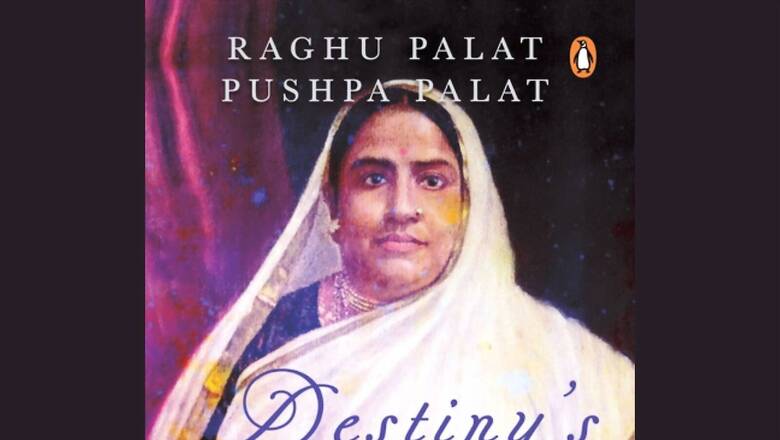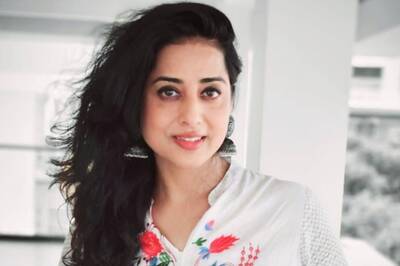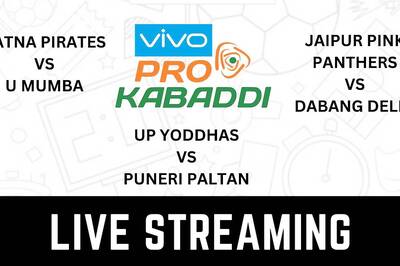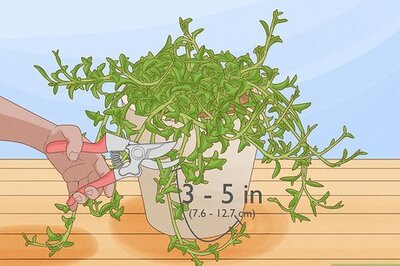
views
Parukutty (Neithyaramma) was a formidable woman. As opposed to meekly awaiting what might happen next, she prepared herself to withstand the combined onslaught of the Thampurans and the British.
Kurur Nilakantan Nambudiripad, Parukutty’s cousin, a prominent nationalist was elected President of the Congress Party in Cochin in 1925 for 12 years. Parukutty decided that she would ally with the freedom struggle. This was a masterstroke as the British had realized, in the explosive period after the Jallianwala Bagh massacre and the Punjab atrocities, that they should be more careful in their handling of Indians. More so as the famous O’Dwyer v Nair case fought at the court of the Kings Bench in London broadcast to the world the tyranny of the British in India.
There was a wave of resentment and anger against the British and a strident call for freedom. Parukutty, unlike other Indian princes who chose to be subservient to the British in order to protect their thrones, became a nationalist. The British were thrown out of gear by Parukutty’s strategy. Should they now consider deposing Maharaja Rama Varma XVI, it would appear as though they were casting aside a ruler because he advocated independence from the British for his country. Such a person would instantly be seen as a martyr, further inflaming the nationalists.
As she was busy with affairs of the state, Parukutty encouraged her younger daughter, V.K. Vilasini Amma to write to Mahatma Gandhi. She did, and Mahatma Gandhi, delighted to have such a supporter, kept in correspondence with her. Parukutty, in this manner, got her family involved in the freedom struggle.
Mahatma Gandhi came to Kerala in March 1925. The purpose of his visit was to stop caste discrimination and untouchability. He had a satyagraha at Vaikom in Travancore with the intent of opening the temple there to all Hindus. After that he came to Ernakulam by boat from Alleppey in Travancore and addressed the municipality. During this visit on 26 March 1925 while speaking to a women’s organization he mentioned that in Cochin the royal family was wearing khadi and also spun yarn.
This was most upsetting to the British. An intelligence report sent to Delhi stated, ‘The Hill Palace is the centre of nationalist activity and charkhas have been introduced to assist the weaving of khadi.’
Gandhi visited Cochin again on 13 October 1927. During this visit, he was treated as a state guest and was offered the state guest house, Krishna Vilasam Palace, to reside in. Shortly after his arrival, Parukutty made a very bold move. She had earlier sent word to Mahatma Gandhi that she was keen to meet with him. Gandhi had offered to visit the Maharaja and her at the Hill Palace. Parukutty did not want Gandhi to know how ill the Maharaja was. She felt that if Gandhi became aware of his illness, the news would spread across India. Therefore, she put it to him that as Gandhi would be tired after gruelling tours, that she would visit him. Gandhi was most pleased and agreed.
Along with Diwan Narayana Iyer, Parukutty, wearing a white khadi sari that she had spun and bereft of any jewellery, called on Gandhi. Mahatma Gandhi had heard that Parukutty was a very autocratic and power-hungry woman who ruled the state with an iron hand and tolerated no opposition. This slightly plump lady in a plain khadi sari was entirely different from what he had imagined. On meeting the Mahatma, this powerful woman, in the north Indian custom, bowed down and touched his feet. Moved beyond words, Gandhi blessed her and gestured for her to sit next to him. She spent the next two hours with him. Parukutty told the Mahatma how much she believed in his cause and regaled him about all that was being done in her state.
She presented him with cheques and cash as a gesture of her commitment to independence. At this juncture, her cousin Kurur Nilakantan Nambudiripad, who was also present, endorsed all that Parukutty had said. Gandhi was both impressed and pleasantly surprised with Parukutty. Unlike in Travancore, here was a lady in power who was not only sympathetic but actually supportive of the national movement. Parukutty spared no efforts in winning Gandhi’s approval. When she heard Gandhi’s travel plans, she generously offered him the use of a state vehicle and chauffeur and had her younger son Aravindaksha accompany him while in the state.
In his speech on 13 October 1927 in Ernakulam, Gandhi announced, ‘On behalf of the Durbar, I received this morning a cheque of Rs. 500 from the Diwan Sahib and I also received through the consort of his Highness the Maharaja notes valued at Rs. 300 on behalf of the Maharaja’s daughter Shrimati Vilasini Devi. What is more I have also received a parcel containing fairly well spun yarn by her sister Shrimati Ratnam, a portion of which was spun by the Consort of the Maharaja herself. Evidently this fact that khadi is favored by the Maharaja house is responsible for the favorable atmosphere that I see in Ernakulam. I thank the Maharaja for extending to me hospitality of the State, as also the gift he has sent me [sic].’
At Ernakulam the next day, Gandhi stayed at Jadavji Keshavji’s Rice Mill and addressed Gujaratis. When he went to Trichur he was again put up at the state guest house, Rama Nilayam, near the Trichur Palace. He held public meetings in the grounds and visited schools such as the Vivekodayam school. He was escorted all through this trip by Aravindaksha and had a state vehicle to convey him.
Later, when Jawaharlal Nehru, Kamala Nehru and their daughter Indira came to Trichur at the end of May 1931 on their way back from Ceylon, they rested at Mr V.K. Narayana Menon’s house Pandyala — Mr Narayana Menon being Aravindaksha’s father-in-law and a cousin of Parukutty. Many years later, the elder daughter of Narayana Menon, Saraswathy, married Dr Sri Ranjan, the Vice Chancellor of Allahabad University and a family friend of Pandit Nehru. She recalled that soon after their wedding, they had invited Pandit Nehru to their home in Allahabad for dinner and when the Pandit came to know who her father was, he remembered Narayana Menon and his wife’s gracious hospitality.
By endorsing the freedom movement and establishing close contacts with the powerful Indians of the time, Parukutty had astutely made sure that it would be increasingly difficult to depose either the Maharaja or her.
This excerpt from Destiny’s Child: The Undefeatable Reign of Cochin’s Parukutty Neithyaramma by Raghu Palat and Pushpa Palat has been published with the permission of Penguin Random House India.
Read all the Latest Opinion News and Breaking News here




















Comments
0 comment